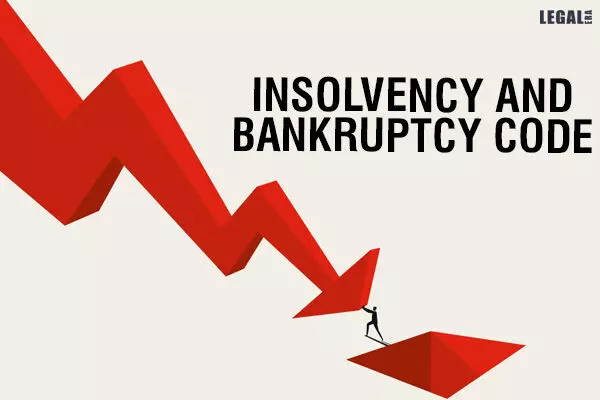- Home
- News
- Articles+
- Aerospace
- Artificial Intelligence
- Agriculture
- Alternate Dispute Resolution
- Arbitration & Mediation
- Banking and Finance
- Bankruptcy
- Book Review
- Bribery & Corruption
- Commercial Litigation
- Competition Law
- Conference Reports
- Consumer Products
- Contract
- Corporate Governance
- Corporate Law
- Covid-19
- Cryptocurrency
- Cybersecurity
- Data Protection
- Defence
- Digital Economy
- E-commerce
- Employment Law
- Energy and Natural Resources
- Entertainment and Sports Law
- Environmental Law
- Environmental, Social, and Governance
- Foreign Direct Investment
- Food and Beverage
- Gaming
- Health Care
- IBC Diaries
- In Focus
- Inclusion & Diversity
- Insurance Law
- Intellectual Property
- International Law
- IP & Tech Era
- Know the Law
- Labour Laws
- Law & Policy and Regulation
- Litigation
- Litigation Funding
- Manufacturing
- Mergers & Acquisitions
- NFTs
- Privacy
- Private Equity
- Project Finance
- Real Estate
- Risk and Compliance
- Student Corner
- Take On Board
- Tax
- Technology Media and Telecom
- Tributes
- Viewpoint
- Zoom In
- Law Firms
- In-House
- Rankings
- E-Magazine
- Legal Era TV
- Events
- Middle East
- Africa
- News
- Articles
- Aerospace
- Artificial Intelligence
- Agriculture
- Alternate Dispute Resolution
- Arbitration & Mediation
- Banking and Finance
- Bankruptcy
- Book Review
- Bribery & Corruption
- Commercial Litigation
- Competition Law
- Conference Reports
- Consumer Products
- Contract
- Corporate Governance
- Corporate Law
- Covid-19
- Cryptocurrency
- Cybersecurity
- Data Protection
- Defence
- Digital Economy
- E-commerce
- Employment Law
- Energy and Natural Resources
- Entertainment and Sports Law
- Environmental Law
- Environmental, Social, and Governance
- Foreign Direct Investment
- Food and Beverage
- Gaming
- Health Care
- IBC Diaries
- In Focus
- Inclusion & Diversity
- Insurance Law
- Intellectual Property
- International Law
- IP & Tech Era
- Know the Law
- Labour Laws
- Law & Policy and Regulation
- Litigation
- Litigation Funding
- Manufacturing
- Mergers & Acquisitions
- NFTs
- Privacy
- Private Equity
- Project Finance
- Real Estate
- Risk and Compliance
- Student Corner
- Take On Board
- Tax
- Technology Media and Telecom
- Tributes
- Viewpoint
- Zoom In
- Law Firms
- In-House
- Rankings
- E-Magazine
- Legal Era TV
- Events
- Middle East
- Africa
NCLT Approves Replacement Of IRP With Insolvency Professional Entity, Emphasizes Adherence To CoC Resolution And IBC Timeline

NCLT Approves Replacement Of IRP With Insolvency Professional Entity, Emphasizes Adherence To CoC Resolution And IBC Timeline
The National Company Law Tribunal (NCLT) Mumbai, in a recent ruling, allowed the replacement of the Interim Resolution Professional (IRP) with a new Resolution Professional, M/s Incorp Restructuring Services LLP, under Section 22(3)(b) of the Insolvency and Bankruptcy Code, 2016 (IBC).
The division bench, comprising K. R. Saji Kumar (Judicial Member) and Sanjiv Dutt (Technical Member), emphasised the importance of adhering to the Committee of Creditors’ (CoC) resolution and the IBC’s strict timelines while acknowledging the regulatory framework governing Insolvency Professional Entities (IPEs).
The case involved the Committee of Creditors (CoC) filing an application under Section 7 of the IBC to initiate the Corporate Insolvency Resolution Process (CIRP) against Notion Real Estate Private Limited, the corporate debtor. The corporate debtor was admitted into CIRP on January 9, 2024. The CoC then filed an application under Section 22(3)(b) of the IBC to replace the IRP with M/s Incorp Restructuring Services LLP, an IPE, which was approved by the CoC with 100% voting in favour.
During the proceedings, the NCLT sought clarification on the consistency of appointing IPEs as resolution professionals within the framework of the IBC. The applicant argued that while the IBC primarily recognises individual insolvency professionals, IPEs are also regulated under the Insolvency and Bankruptcy Board of India (Insolvency Professionals) Regulations, 2016, and can be appointed as resolution professionals.
The applicant further contended that the term “person” in Section 3(23)(f) of the IBC includes LLPs, thus supporting the regulation and recognition of IPEs by the IBBI. Additionally, the IBBI has the authority under Section 240(2)(zzi) of the IBC to formulate regulations regarding the qualifications and categories of professionals, which justifies treating IPEs as insolvency professionals.
However, the NCLT noted that Sections 206 and 207 of the IBC define an insolvency professional as an individual, implying that only individuals can serve in this role. The tribunal also observed that Form AA, used for obtaining consent to act as a Resolution Professional, is specifically designed for individuals, and no separate form exists for IPEs. The NCLT pointed out that M/s Incorp Restructuring Services LLP had modified Form AA to suit its needs, reflecting its consent.
Despite these observations, the NCLT acknowledged the CoC’s unanimous decision to appoint M/s Incorp Restructuring Services LLP as the Resolution Professional and recognised the regulatory and practical context of this decision. The tribunal approved the appointment, subject to Regulation 34B read with Schedule II of the CIRP Regulations, and directed the IRP to hand over the CIRP of the corporate debtor to the IPE immediately.



